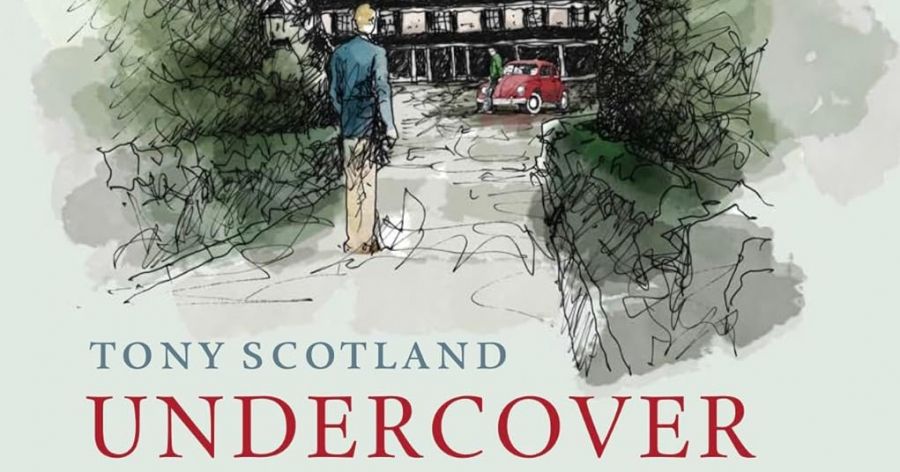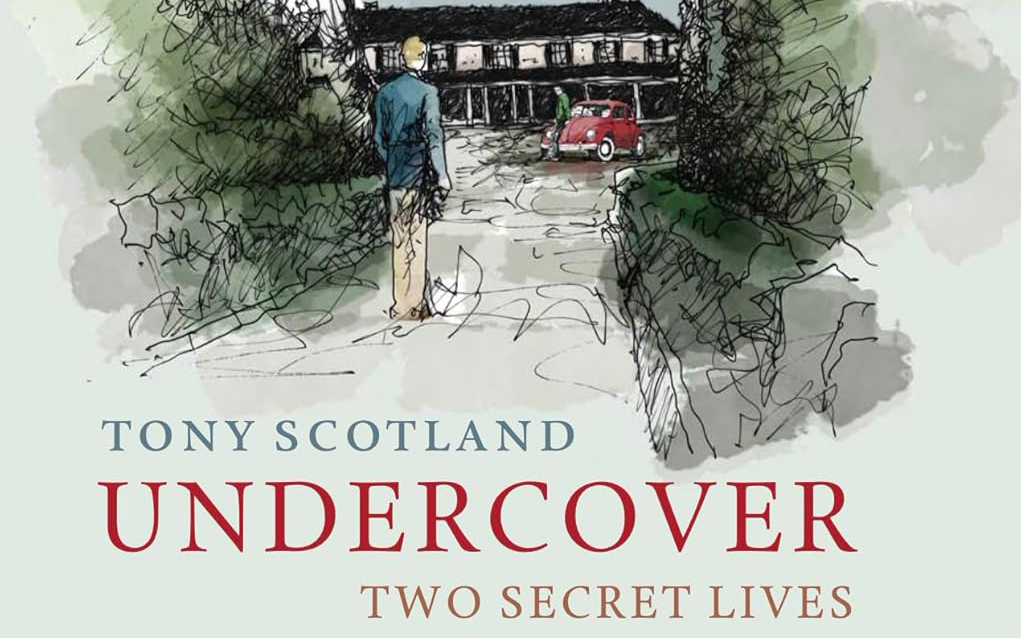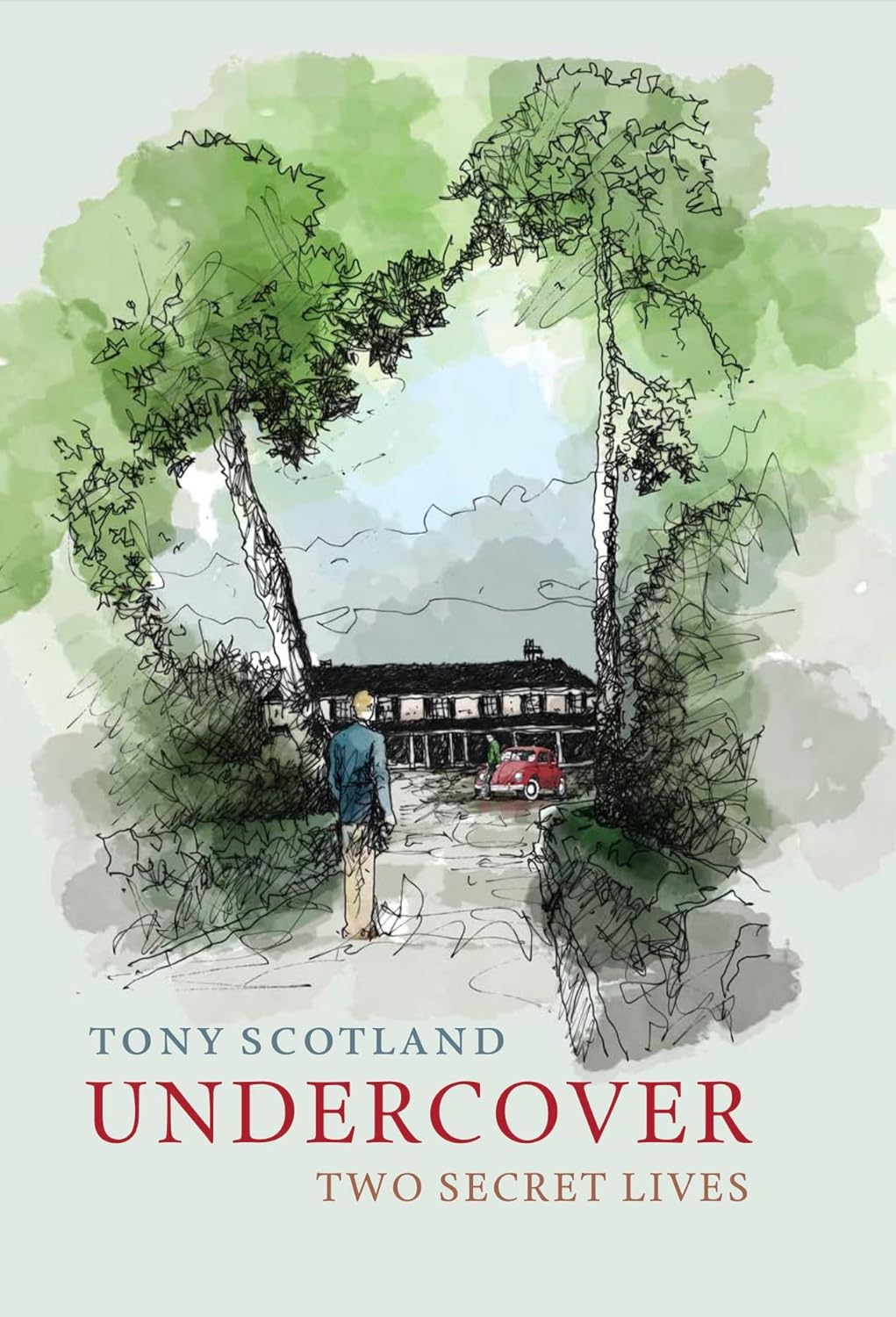
- Free Article: No
- Contents Category: Gay Studies
- Review Article: Yes
- Article Title: Milo’s puppies
- Article Subtitle: The grooming of a Ten Pound Poem
- Online Only: No
- Custom Highlight Text:
Gerald Glaskin’s 1965 novel No End to the Way is high on melodrama and long out of print, but it had a life-changing effect on Tony Scotland. Published under the pseudonym Neville Jackson, it examines the tangled relations of three gay men living in Australia in the 1960s. Two of them live in a configuration resembling wedlock, until the third (the ex-lover of one of the men), in a spasm of envy, blackmails the couple and dynamites the relationship.
- Featured Image (400px * 250px):

- Alt Tag (Featured Image): David Gelber reviews ‘Undercover: Two secret lives’ by Tony Scotland
- Book 1 Title: Undercover
- Book 1 Subtitle: Two secret lives
- Book 1 Biblio: Shelf Lives, £25 hb, 256 pp
- Book 1 Cover Small (400 x 600):

- Book 1 Cover (800 x 1200):

Despite the inauspicious ending – and the fact that it was no sooner published here than banned – Glaskin’s novel presented Australia to the young Scotland as a land of romantic opportunity. He promptly packed in his apprenticeship at a newspaper in provincial England and set off for New South Wales as a Ten Pound Pom. During his short stint at The Sydney Morning Herald, he was propositioned by a married Cabinet minister and a New Zealand shearer, and spent a not-quite-dirty weekend with a waitress in Cronulla. Out of love and disenchanted with big-city life, he eventually applied for a job with the ABC in Tasmania. Successful, he moved to Hobart.
Six months into his stay, he was sent to winkle an interview out of a mysterious Anglo-Irish peer who lived on a sheep station near Fingal and who had just produced the definitive study of Tasmanian flora, Lord Talbot de Malahide. Known as ‘Milo’, Talbot had retired from service in the Foreign Office and now divided his time between his Tasmanian estate and a castle in Ireland, both conveniently named ‘Malahide’. A resolute bachelor, Talbot had repulsed earlier journalistic approaches, but Scotland’s editor at the ABC had an inkling that the sprog English reporter might be the man to hook him.
Her instinct proved accurate. Talbot granted Scotland an interview, though at their first meeting on the sweeping verandah at Malahide, it was the balding, pebble-faced, stiff-suited aristocrat who barked most of the questions. The audience turned into lunch, lunch begat an invitation to return, and so began a friendship that ended in 1973, six years after the meeting in Tasmania, when Talbot died at the age of sixty.
Undercover is Scotland’s memoir of his dealings with Talbot, a man thirty years his elder. It was in every respect a queer relationship, Talbot cycling through the roles of pedagogue, surrogate father, psychotherapist, and suitor to Scotland, and Scotland alternatively welcoming and resisting his attentions. Accounts of their encounters in Australia, England, and Ireland are interspersed with reconstructions of Talbot’s life before the conference on the verandah, which involved a stint in the intelligence services, a spell as British ambassador to Laos, and a brush with the spy ring known as the Cambridge Five.
Neither man exactly disguised their sexuality, and in this respect the book’s title is slightly misleading. For Scotland, the presence in Talbot’s library of works with titles like The Prussian Officer and The Charioteer was something of a giveaway; the young Englishman betrayed his own proclivities by leaving one such volume lying half examined on Talbot’s floor. Yet the story Scotland tells is nevertheless intriguing and some degrees stranger than the typical tale of suppression and subterfuge in the era before gay liberation. Talbot had made mastery of his sexual urges a lifelong project. He told Scotland that only by following a similar drill could he possibly pursue a functional existence. So, after Scotland had returned from Australia to Britain, Talbot exposed him to what would nowadays be called conversion therapy. Scotland, stalled in his journalistic career, submitted to Talbot’s prescriptions, agreeing to see a battalion of psychiatrists and, for a time, to undergo oestrogen treatment. Scotland recounts how, as this was going on, Talbot hosted him repeatedly at Malahide Castle outside Dublin, invited him to plays for his improvement, and took him as something like a consort to parties at stately homes.
The sections on Talbot’s life in the intelligence services are less diverting. Here, his lordship retreats into two dimensions and Scotland falls back on secondary sources. Talbot’s connections with the Cambridge Five were fleeting and, as Scotland says, there is no evidence that he was a double agent, though it has been rumoured. All the same, Scotland runs through the familiar tale of how Burgess, Maclean et al. were exposed. He refers, along the way, to ‘one of Guy Burgess’s most recent biographers’, a phrase that accidentally illustrates the problem.
Talbot could be possessive and jealous, and at times it looked like his own self-denial might be sliding (in one letter, he confessed to thoughts of ‘dating’ Scotland). If the author had made it as a newspaper reporter, the story of the relationship might have been couched in terms like ‘grooming’ and ‘gaslighting’. Yet Scotland, who fetched up as a BBC announcer, never rushes to judgement or stoops to sensation. An air of curiosity pervades his narrative, and there are moments of drollery. Scotland was only one of Talbot’s ‘puppies’, and by no means the most accomplished. ‘If only you were a plant dog,’ Talbot lamented when Scotland failed to show sufficient interest in his garden, which according to Nancy Mitford looked ‘exactly like a suburban golf course’.
Scotland is a spare and unsentimental chronicler, but there is plenty in the margins of his narrative that conjures up the world we have, for better or worse, lost. His description of the workings of a pre-internet newsroom will terrify digital natives, while his recollection of a suburban cinema audience’s response to the Dirk Bogarde film Victim in 1961 will surprise those who imagine mid-twentieth-century Britain to have been seething with homophobia. Indeed, it is striking how unprejudiced nearly everyone – Australian and British – mentioned in this memoir was, which makes the peculiar regimen Talbot prepared for Scotland seem all the more anachronistic.


Comments powered by CComment